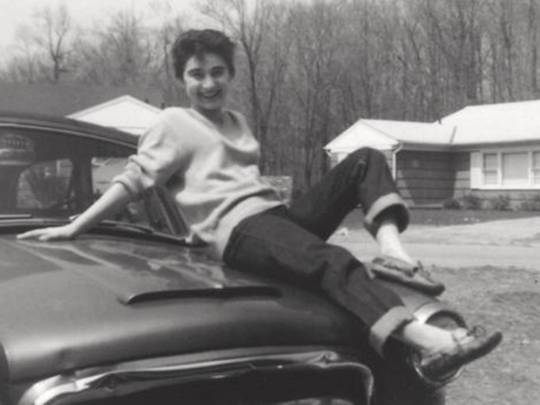#kitty genovese
Explore tagged Tumblr posts
Text
Recent research found the cruelty of Zimbardo’s prison guards didn’t emerge spontaneously; some behaviour was encouraged. Some of the “prisoners” later admitted that they were pretending to be distressed. Similarly, a study published in 2007 found that the 1964 incident that inspired the theory of the bystander effect was distorted. According to the paper, archive material shows far fewer people witnessed the incident than was reported at the time, and some people could only hear screams, without seeing the location of the incident. At least one person did try to intervene. Recent research indicates that bystanders are much more likely to intervene than the theory suggests. A 2019 study of 219 violent situations from cities around the world caught on CCTV showed that bystanders – not just one, usually several – intervened to help victims 90% of the time. The study also found that the more people were present, the more likely passers-by were to intervene. In the words of the study’s lead researcher, Richard Philpot: “It shows that people have a natural inclination to help when they see someone in need.” The burgeoning field of “heroism studies” also questions the bystander effect. In a recent article for The Conversation, I described how acts of heroic altruism are common during terrorist attacks, when people often risk their own lives to help others. Consider the following situation: you’re standing on a train platform. The person next to you suddenly faints and falls on to the track, unconscious. In the distance, you can see a train approaching. What would you do? You might doubt whether you would act heroically. But don’t underestimate yourself. There is a strong possibility that, before you knew it, you would find yourself on down on the track, helping the person to safety. There is a growing awareness amongst researchers that heroism is natural and spontaneous, and by no means exceptional.
#psychology#altruism#Heroism Studies#bystander effect#Stanford prison experiment#Kitty Genovese#Philip Zimbardo
402 notes
·
View notes
Text

(Kristin Enmark is the woman in the original "Stockholm Syndrome" case, for the record)
45 notes
·
View notes
Text
The Public Rape and Murder of Kitty Genovese

In the early hours of 13th March 1964, 28-year-old Kitty Genovese finished her shift as a Bar Manager at Ev’s 11th Hour in Queens, New York, and began her journey home. Kitty worked long hours at two jobs in the hopes of one day earning enough money to open an Italian restaurant.
She left the bar at around 2:30am and got into her car. Unbeknownst to Kitty, while stopped at a traffic light, she was spotted by a man driving a white Chevrolet Corvair. Unfortunately for her, the stranger decided at that moment to follow Kitty and make her the victim of a viciously fatal attack.
Kitty arrived back in her home neighbourhood at approximately 3:15am. She got out of her car and walked towards her apartment building, turning onto a dimly lit alleyway in Kew Gardens. Her armed attacker followed closely behind and grabbed her as she almost approached the safety of her home. When Kitty screamed out from the shock, he plunged a knife into her back, causing her to stumble and fall to the ground. Altered by Kitty’s cries for help, one neighbour named Robert Mozer opened his window and yelled “Leave that girl alone!” causing the attacker to flee the scene, but the police were not called.

Suffering from the stab wound in her back, Kitty stumbled into a nearby doorway, where she collapsed. Sadly, this did not mark the end of her trauma, as the perpetrator had only temporarily fled. He waited for ten minutes in his car, changed his hat, and then headed back to the crime scene to find Kitty — he then stabbed her over a dozen times and raped her in an attack which lasted for thirty minutes.
Read the full story here.
#kitty genovese#the bystander effect#sociology#murder#violence against women#medium#long post#true crime
17 notes
·
View notes
Text
fucked up how the nypd turned a story of them ignoring calls about a lesbian being murdered into a story about how “well I guess nobody called the cops. ¯\_(ツ)_/¯”
42 notes
·
View notes
Text
Not only the perpetrators but the bystanders will face eternal recompense for their Crimes.
You created the atmosphere for evil to thrive and good to shrink, and sustained it, too.
Double, double.
8 notes
·
View notes
Text
youtube
Dica de cinema: A chamada "síndrome do espectador" nos filmes, mais comum do que se imagina!
#Kitty Genovese#superman#henry cavill#man of steel#monica bellucci#kevin costner#clark kent#jonathan kent#irreversible#shocking movies#the purge#ethan hawke#airplane#leslie nielsen#spectator syndrome#vincent cassel#french movies#airplane!#ghosts of war#Youtube
3 notes
·
View notes
Text
In 1964, Kitty Genovese was robbed, raped, and stabbed to death in the apathetic streets of New York, her plaintive Psychology 101 textbook cries for help ignored by dozens of onlookers and neighborhood residents. Hence, the "bystander effect": the more people around to provide help, the less likely one is to receive help.
Paul Beatty, ‘The Sellout’
4 notes
·
View notes
Text
Also, the events at Rosie’s Diner give me giant Kitty Genovese vibes. The bystander effect— which means when you see something bad happening in a crowd of people, your first instinct, instead of doing something helpful, is to go “Wow! That’s fucked up. Someone else will handle it.” Everyone thinks someone is going to do something; so no one does. That’s why no one, out of eighty(?) witnesses, helped Kitty Genovese when she was getting stabbed in broad daylight.
I’ve been fooled by the bystander effect before too; of course, not in as extreme a way as the Kitty Genovese case. Since then, I’ve forcibly made myself immune to it.
Basically, every time you walk out of the house, you have to assume that no one is going to help if something bad happens. Leave your house with the knowledge that YOU are the only person with the power, resources, and will to act when there’s an emergency. People don’t care? Then you are not a person. You are a walking threat. This is the mindset in which I have left the house every morning for six years, and it has served me well. Every situation I’ve encountered up until this point, I have slept well at night after because I know I’ve done all I could, whether my actions ended up successfully helping someone or not. I’d rather act with some detriment to myself than not act with detriment to others.
#thirteen reasons why#sorry this got intense but [laughs] I’m an intense person#on the internet because that’s the only place I can afford to be this intense without scaring the shit out of everyone#although I’ve probably gone too far here#kitty genovese#bystander effect
2 notes
·
View notes
Text
La condena del ciudadano ejemplar: el síndrome del espectador
"En una sociedad cada vez más alienada, que lo mismo engendra manadas como se une para acabar con ellas, hay cabida para la omisión del deber del ciudadano" ¿Qué tienen en común Marina Abramovic, Yoko Ono y Kitty Genovese? "37 personas que vieron un crimen no llamaron a la policía". En este artículo de Elena González (@lacalandria) se tratan varias cuestiones que están interrelacionadas, como la Teoría de la Difusión de la Responsabilidad, la agresividad pasiva de grupo, o el consentimiento del sujeto que asume su objetificaci��n. La complicidad del rebaño. @lacalandria
8 notes
·
View notes
Text
Twenty-eight years old, she's crazy about dancing and has more friends than free time.

"Humankind: A Hopeful History" - Rutger Bregman
#book quote#humankind#rutger bregman#nonfiction#kitty genovese#catherine susan genovese#catherine genovese#1960s#60s#20th century#new york city#nyc#new york#friends#dancing
6 notes
·
View notes
Text
But that night it's cold outside, and Kitty's in a hurry to get home to her girlfriend. It's their first anniversary, and all Kitty wants to do is cuddle up with Mary Ann.
"Humankind: A Hopeful History" - Rutger Bregman
#book quote#humankind#rutger bregman#nonfiction#catherine susan genovese#catherine genovese#kitty genovese#anniversary#first anniversary#special occasion#same sex relationships#lesbian#girlfriend
2 notes
·
View notes
Text

Kitty Genovese: The Murder, the Bystanders, the Crime that Changed America
Kitty Genovese, Kevin Cook’s history of the infamous 1964 Kew Gardens murder, is a compelling sociological study of a case that has become a foundational lesson in psychology and sociology courses. Best known for its association with the “bystander effect,” the Genovese murder became a pivotal moment in American urban life. Cook challenges the long-accepted narrative of “thirty-eight” witnesses who supposedly watched the attack unfold and did nothing. Instead, he argues that the story was exaggerated, shaped mainly by media sensationalism—particularly through the influence of New York Times editor A.M. Rosenthal.
Beyond the mythology, Cook brings depth to Genovese herself, illuminating her life beyond her tragic end. Notably absent from early accounts was the fact that she was a lesbian, living with her partner Mary Ann Zielonko. Cook gives voice to Mary, whose reflections add a deeply personal dimension to the narrative. Their life together—spent navigating the Greenwich Village folk scene, enjoying the relative anonymity of their quiet Kew Gardens apartment—becomes a poignant contrast to the horror that would shatter it. Kitty, the eldest of five children in an Italian-American family from Park Slope, had carved out an independent life for herself as a bar manager in Hollis, Queens.
Cook also traces the life of her killer, Winston Moseley, an African-American man from Ozone Park whose crimes extended beyond Kitty’s murder. Despite never receiving a definitive psychological diagnosis, Moseley’s later crimes—including violent attacks during a four-day prison escape in 1968—revealed a pattern of calculated brutality. His remorseless nature kept him in prison longer than almost any other New York State inmate, though his case continues to spark debates about criminal psychology.
Any study of the Genovese case must address Rosenthal’s Thirty-Eight Witnesses, which shaped public perception almost immediately after the crime. His coverage cemented the idea of apathetic urban bystanders, with the phrase “I didn’t want to get involved” becoming shorthand for cold detachment. Cook dismantles this notion, demonstrating that the witnesses were far from indifferent—some called the police, others were unsure of what they were seeing, and one neighbor did, in fact, rush to Kitty’s aid. Yet, Cook acknowledges that the case had lasting effects: it spurred research into bystander behavior and led to tangible changes, including the eventual creation of 911 as a universal emergency number.
One point Cook does not refute—echoed by Maureen Dowd on the 25th anniversary of the murder—is that Kitty’s death marked a psychological shift in how New Yorkers viewed crime. The perceived safety of the postwar years faded, giving way to the crime-ridden landscape of the ’70s and ’80s. In the wake of the murder, studies on apathy and urban psychology proliferated, and the Genovese case became a staple of both criminology and popular culture.
Cook’s Kitty Genovese succeeds in telling a more nuanced, well-rounded version of the case, moving beyond the myth to explore its lasting social and psychological impact. It is an essential read for anyone interested in true crime, urban sociology, or the shaping of modern psychology.
#Kitty Genovese #truecrime
0 notes
Text
1 note
·
View note
Text

youtube
youtube
Matt 25:41-46
Jude 1:8
TOODLES
youtube
youtube
youtube
youtube

youtube
youtube
youtube

#Anointing#Boondocks Saints#Youtube#Lupin#Muck#Sewers#kitty genovese#Indifference#Good men#Mr rogers#Neighbor#Hood#Love#gangstas paradise#Spiritual#Thieves#Garden#Mind#Healing#High mystic#Cherubim#Self Esteem#Problem Solver#Generational trauma#Culture#Uncultured
0 notes
Text
Spettatori di morte. Il caso di Kitty Genovese e l'Effetto spettatore
youtube
View On WordPress
1 note
·
View note
Text
0 notes